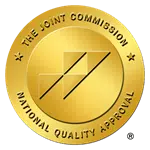Post-Traumatic Stress Disorder (PTSD) is a mental health disorder that can develop after experiencing or witnessing a traumatic event. Traumatic events can include natural disasters, accidents, physical or sexual assault, combat, or any event that causes intense fear, helplessness, or horror.

4 Types of PTSD
PTSD is characterized by a range of symptoms that can be grouped into four categories:
Intrusive Thoughts: Individuals with PTSD may experience intrusive thoughts, memories, or nightmares about the traumatic event. These thoughts can be distressing and cause significant emotional distress.
Avoidance: People with PTSD often try to avoid anything that reminds them of the traumatic event. This can include avoiding certain places, activities, or even people. They may also avoid talking or thinking about the event.
Negative Mood and Cognition: PTSD can lead to negative thoughts and beliefs about oneself, others, or the world. Individuals may experience feelings of guilt, shame, or a sense of detachment. They may also have difficulties remembering details of the traumatic event.
Hyperarousal: PTSD can cause individuals to feel constantly on edge, irritable, and easily startled. They may have trouble sleeping, experience difficulty concentrating, and exhibit hypervigilance.
How PTSD and Addiction Can Co-occur
PTSD and addiction often co-occur, meaning they occur together in the same individual. There are several ways in which PTSD can relate to addiction:
Self-Medication: Individuals with PTSD may turn to substances, such as drugs or alcohol, as a way to self-medicate to cope with distressing symptoms of PTSD. Substance use can temporarily numb emotional pain and painful memories or provide temporary relief from anxiety or hypervigilance. They may turn to drugs or alcohol to numb emotional pain, manage anxiety or hyperarousal, or alleviate nightmares or flashbacks. However, while substances may provide temporary relief, they can ultimately exacerbate the symptoms of PTSD and lead to a vicious cycle with addiction.
Increased Vulnerability: Trauma and PTSD can increase an individual’s vulnerability to developing addiction. The experience of a traumatic event can disrupt the brain’s reward system and increase the risk of developing substance use disorders.
Escapism: Substance use can serve as a means of escape or avoidance for individuals with PTSD. They may use drugs or alcohol to numb painful emotions, forget about the traumatic event, or temporarily alleviate distressing symptoms.
Cycle of Addiction and Trauma: Addiction and trauma can create a vicious cycle. Substance abuse can worsen the symptoms of PTSD, leading to more distress and a greater reliance on substances. This cycle can be challenging to break without appropriate treatment. Individuals with PTSD may have specific triggers that remind them of the traumatic event and activate distressing symptoms. These triggers can include certain sounds, smells, places, or even people. In an attempt to avoid these triggers, individuals may resort to substance use as a way to cope or escape
Co-occurring Disorders: PTSD and addiction commonly co-occur. It is common for PTSD and addiction to occur together. In fact, research has shown that individuals with PTSD are at a higher risk for developing substance use disorders, and individuals with substance use disorders are more likely to experience trauma. The combination of these two disorders can create complex challenges for individuals and require specialized treatment approaches.
Shared Risk Factors: Both PTSD and addiction share certain risk factors. These can include a history of childhood trauma, genetics, family history of addiction, and certain personality traits such as impulsivity or sensation-seeking behavior.
PTSD, Mental Health and Other Factors
Integrated Treatment Approaches: It is important to recognize that addressing both PTSD and addiction is crucial for successful recovery. Integrated treatment approaches that target both disorders simultaneously, such as trauma-informed therapy and substance abuse treatment, can be effective in helping individuals manage their symptoms, develop healthier coping mechanisms, and achieve lasting recovery.
Comorbid Mental Health Conditions: PTSD is often accompanied by other mental health conditions such as depression, anxiety disorders, or other trauma-related disorders. These co-occurring conditions can further complicate the relationship between PTSD and addiction and may require comprehensive treatment approaches.
Neurobiological Impact: Both PTSD and addiction have an impact on the brain’s reward system and stress response. In PTSD, there is heightened activation of the amygdala (the brain’s fear center) and an impaired prefrontal cortex (responsible for regulating emotions). These changes contribute to hyperarousal, hypervigilance, and an increased sensitivity to stress. Similarly, addiction affects the reward system by hijacking the brain’s natural processes and causing dysregulation of dopamine, a neurotransmitter associated with pleasure and reward.
Trauma Re-Enactment: Individuals with PTSD may unknowingly engage in behaviors that replicate aspects of the traumatic experience. This can include seeking out dangerous situations, re-enacting the trauma through self-destructive actions, or engaging in risky behaviors. Substance use can be one way in which individuals unconsciously try to recreate or numb the feelings associated with the initial trauma.
Impact on Relationships: Both PTSD and addiction can have a significant impact on relationships. The symptoms of PTSD, such as irritability, emotional numbness, and avoidance, can strain interpersonal connections. Substance use can further exacerbate these difficulties, leading to strained relationships, conflicts, and social isolation.
Relapse and Triggers: Triggers, which can be internal or external cues that remind individuals of the trauma or substance use, can increase the risk of relapse in both PTSD and addiction. It is important for individuals in recovery to develop coping strategies to manage triggers effectively and prevent relapse.
Stigma and Barriers to Treatment: Stigma surrounding mental health and addiction can pose barriers to seeking treatment for both PTSD and addiction. Many individuals may feel ashamed or fear judgment, which can prevent them from reaching out for help. Addressing and reducing stigma is crucial in ensuring that individuals receive the support and treatment they need.
Recovery is Possible: Treatment Approaches
While co-occurring PTSD and addiction can be challenging, recovery is possible with the right treatment and support. Integrated treatment approaches that address both disorders simultaneously have been shown to be effective in improving outcomes and promoting recovery. With therapy, support, and a comprehensive treatment plan, individuals can learn to manage symptoms, address underlying trauma, and develop healthier coping mechanisms.
Remember, if you or someone you know is struggling with PTSD and addiction, it is essential to reach out to a healthcare professional or a mental health and addiction specialist. They can provide a proper diagnosis and guide you towards the appropriate treatment options for your specific needs.
Trauma-Informed Care: When treating individuals with co-occurring PTSD and addiction, it is essential to adopt a trauma-informed approach. Trauma-informed care recognizes the impact of trauma on individuals’ lives and provides a safe and supportive environment for healing. This approach emphasizes the importance of understanding the individual’s trauma history, promoting empowerment, and avoiding retraumatization.
Dual Diagnosis Treatment: Dual diagnosis treatment refers to an integrated approach that addresses both PTSD and addiction simultaneously. This comprehensive treatment approach recognizes the interconnectedness of these disorders and aims to provide tailored interventions that target both conditions. Dual diagnosis treatment may involve a combination of therapy, medication, support groups, and other evidence-based treatments.
Medication-Assisted Treatment: In some cases, medication-assisted treatment (MAT) may be recommended as part of the treatment plan for individuals with co-occurring PTSD and addiction. MAT involves the use of medications, such as certain antidepressants or anti-anxiety medications, to help manage the symptoms of PTSD while also addressing the cravings and withdrawal symptoms associated with addiction.
Treatment Considerations: Treating both PTSD and addiction simultaneously is crucial for long-term recovery. Integrated treatment approaches that address both disorders concurrently have shown to be the most effective. These approaches may include evidence-based therapies such as cognitive-behavioral therapy (CBT), eye movement desensitization and reprocessing (EMDR), trauma-focused therapies, and substance abuse treatment programs.
Supportive Services: In addition to therapy, individuals with co-occurring PTSD and addiction may benefit from support groups, peer support, and holistic approaches such as mindfulness, meditation, and exercise. These can provide additional tools for managing symptoms and promoting overall well-being.
Holistic Approaches: In addition to traditional therapies, holistic approaches can be beneficial for individuals with PTSD and addiction. These approaches focus on nurturing the mind, body, and spirit and may include practices such as mindfulness, yoga, meditation, art therapy, and exercise. Holistic approaches can help individuals develop healthy coping strategies, reduce stress, and promote overall well-being.
Personalized Treatment: It’s important to remember that every individual’s experience with PTSD and addiction is unique, and treatment approaches should be tailored to their specific needs. Seeking professional help from mental health and addiction specialists is essential for accurate diagnosis, comprehensive treatment planning, and ongoing support.
Long-Term Recovery: Recovery from co-occurring PTSD and addiction is an ongoing process. It requires commitment, support, and a willingness to address underlying trauma and develop healthier ways of coping. Building a strong support system, engaging in therapy, and making lifestyle changes can all contribute to long-term recovery and a better quality of life.
It’s important to remember that everyone’s journey to recovery is unique, and treatment needs to be tailored to individual circumstances. If you or someone you know is struggling with PTSD and addiction, reach out to a healthcare professional or a mental health and addiction specialist for guidance and support.
Source
McCauley J. et al. 2012. Posttraumatic Stress Disorder and Co-Occurring Substance Use Disorders: Advances in Assessment and Treatment. Clin Psychol (New York). 2012 Sep 1; 19(3): 10.1111/cpsp.12006.
Flanagan, J. et al. 2016. Concurrent Treatment of Substance Use and PTSD. Curr Psychiatry Rep. 2016 Aug; 18(8): 70. doi: 10.1007/s11920-016-0709-y


















